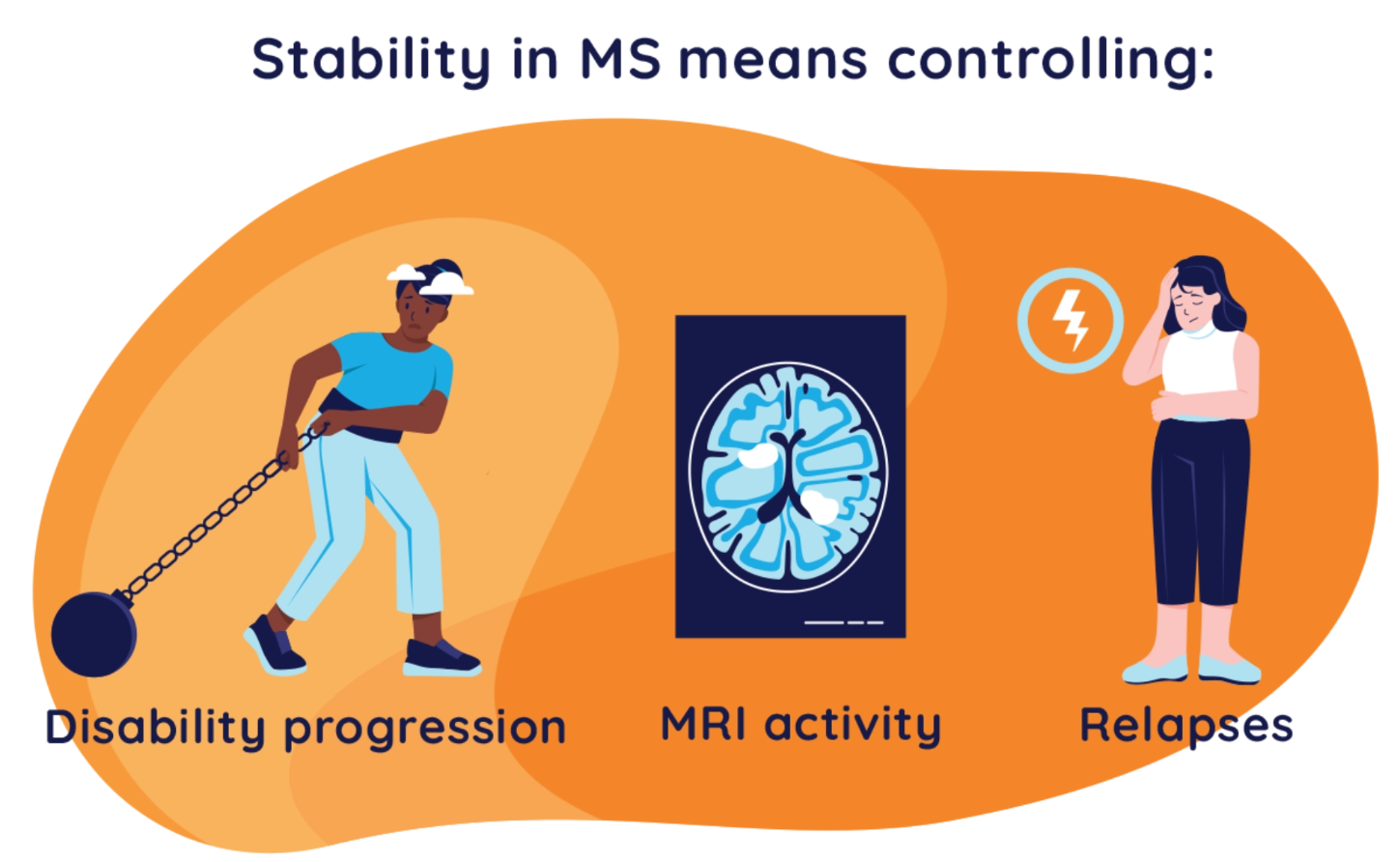Is it MS progression?
Are you noticing small changes to how you’re able to do things? Even if your MRI isn't showing changes, changes to your physical and cognitive abilities could still be happening.
Rethinking stability in MS
Brain fog, debilitating fatigue, or balance issues: maybe you’ve attributed them to signs of aging or a bad day rather than your MS. It’s an easy mistake to make, especially when your MRI isn’t showing changes and your relapses are under control.
Now it’s becoming clear that for MS to be truly stable, relapses, MRI activity, and cognitive and physical changes, known as disability progressionA gradual increase or worsening of physical symptoms, cognitive symptoms, and/or fatigue over time., must all be under control.
Disability is more than mobility
When people think of MS, many think about physical and mobility issues like using a cane or wheelchair because the impact of these changes can be obvious. But what about changes to memory and focus?
When someone with MS is experiencing more cognitive challenges or debilitating fatigue, it could be a sign of disability progression.
Noticing signs of disability progression
When daily challenges add up over time, it could be a sign of disability progression. Here are a few ways disability progression can affect normal, everyday activities:
![]()
Struggling to find the right words
![]()
Difficulty remembering appointments
![]()
Lacking the energy to do usual activities
![]()
Being unable to exercise the way you used to
![]()
Forgetting if you already did something
![]()
Tripping or losing balance unexpectedly
Signs like these can be easy to ignore or attribute to something like aging. But if you catch yourself making changes to how you work, socialize, or perform physical tasks, it could be because of your MS.
Are you noticing changes to your abilities?
When routine tasks are harder than they used to be, it could be a sign that something else is going on with your MS.
Do you have to park closer to stores or your doctor's office? Or stop work earlier than you used to? Maybe someone close to you has noticed you making changes because of your MS. Maybe it's in the way you think, talk, or walk. It’s important to keep track of all changes.
Sometimes others notice things about us that we can't see ourselves. You might be able to spot the signs of disability progression on your own, but making sure loved ones feel comfortable sharing what they see could provide an even clearer picture of your MS.
What can be done to help address disability progression?
Here are a few things that doctors may recommend to help people living with MS deal with cognitive and physical challenges:
-
Rehab led by a speech, occupational, and/or physical therapist
-
Therapy, meditation, mindfulness, and/or other mental health practices
-
A healthy diet and regular exercise
-
Support groups that connect you to others with MS



